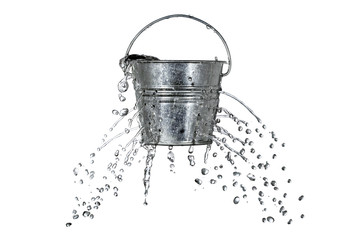What Plumbers and Physical Therapists Share in Common
By Genevieve Jenkins, DPT
AZOPT Buckeye Doctor of Physical Therapy
What do plumbers and physical therapists have in common? They can both fix leaks!
While a plumber would be best employed for household leaks, a physical therapist can help you address a different kind of leak referred to as urinary incontinence.
Before you dismiss this as an article meant only for the elderly, realize that involuntary urination is something even younger adults can experience for a variety of reasons, including:
- Post-childbirth (one or more vaginal deliveries)
- Prostate removal surgery
- Obesity
- Low back pain
- Respiratory disorders
Did you know there are different types of urinary incontinence? One of the most common types is known as stress urinary or activity-related incontinence, which is characterized by leaking occurring with activities, such as (but not limited to):
- Lifting
- Laughing
- Coughing/Sneezing
- Sports
- Pushing/pulling
- Jumping rope
Physical therapists can help with stress or activity-related incontinence by helping you learn to properly engage and strengthen your pelvic floor muscles.
“What is a pelvic floor muscle”, you ask? Believe it or not, there are a group of muscles “down there” that support your bladder and bladder functions. When these muscles become weak or are compromised by things such as aging and/or trauma (i.e.- childbirth or surgery), they tend to lack the strength needed to keep the gate of your bladder closed when the body is under any type of pressure or stress – thus causing an undesirable leak.
Just like any other muscle in your body, these muscles will require strengthening through specific training to become strong enough to withstand increased pressure and prevent urine leakage.
Statistics say that “40% of patients are unable to perform a proper PFM [pelvic floor muscle] contraction with verbal instructions alone.” This means that even if you think you are doing the famous “Kiegel” exercise correctly, and have not had any luck solving your leaking problem, it is likely because you need a professional to help you identify and perform the muscle contraction correctly.
Additionally, doing the exercises one time or once a day for a week is not going to resolve the issue. Why? Because muscles take TIME to strengthen (8 weeks at the very least)!
According to the American College of Sports Medicine, to get muscle hypertrophy (muscle bulk), you need to perform: maximum intensity contractions at a slow speed for 3 sets of 8-12 repetitions, 2-4 days a week for 5 MONTHS.
Bottom line: bladder leaks are NOT normal, even for the elderly and those who have given birth to one or more children. You should not have to live with a bladder leak, no matter how small; and we are here to help!
Reference: Neville, Cynthia. Medbridge Education [online lecture]. Bladder Control: Stress Incontinence
and Pelvic Floor Muscle Training.







